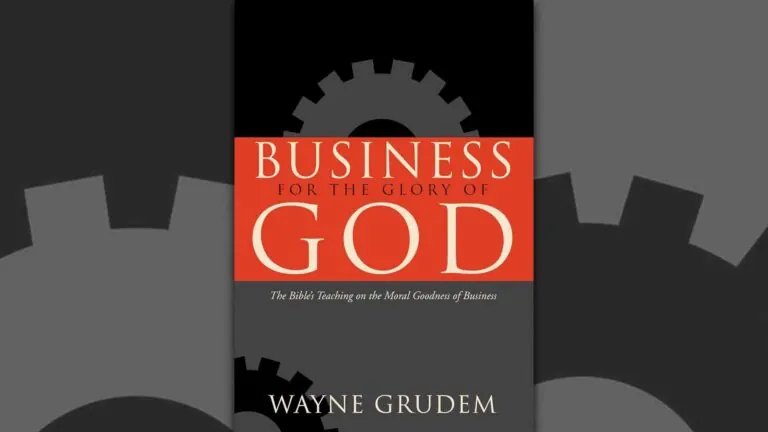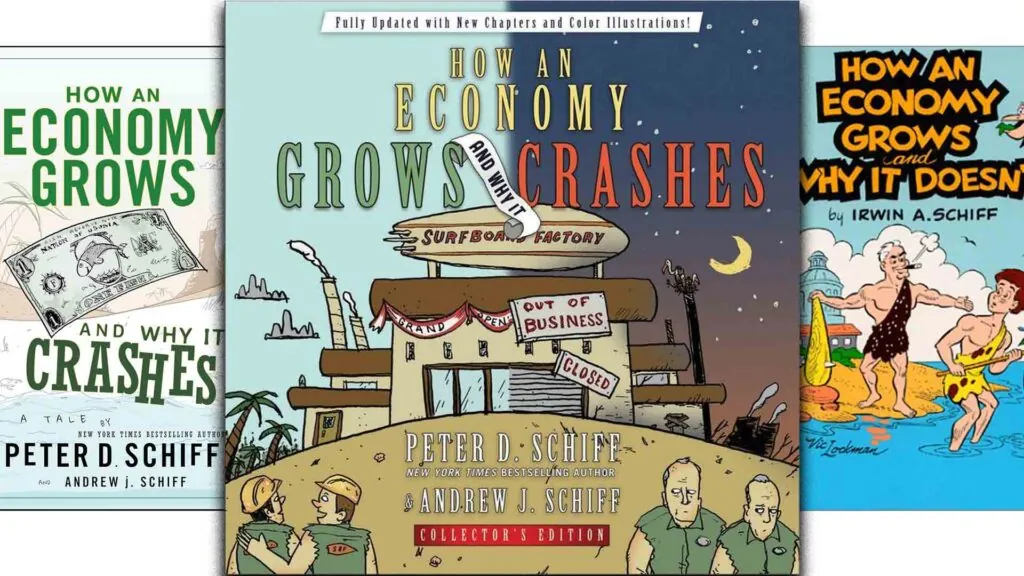The Bible’s teaching on the moral goodness of business
by Wayne Grudem
2003 / 83 pages
If you were to tell someone that they should go into business and in that way glorify God, you would likely receive various responses, and none of them positive. The Occupy Wall Street Movement has equated corporations with greed, and the scandalous conduct of some giant companies, like Enron and Arthur Anderson, has only solidified that connection in the public mind. You wouldn’t be likely to have someone respond: “Good for you, and may God bless you in the very laudable choice you are making.”
But as Mr. Grudem shows, business is not inherently evil, and profit, competition and inequality of possessions are all positive concepts which can be defended biblically. While I found Mr. Grudem stated a point or two too strongly, I also found this to be a very intriguing book that is well worth the read.
A sampling of 3 chapters
In the chapter titled “Productivity” the author opens by stating that “producing goods and services is fundamentally good and provides many opportunities for glorifying God, but also many temptations to sin.”
In this same chapter the “cultural mandate” that we find in Genesis 1:28 – “Be fruitful and increase in number; fill the earth and subdue it…” – is used as a proof text to show that God desires mankind to develop the earth’s resources for his benefit and to God’s glory. I agree with the broad premise of this chapter though I think it would be good to review what the Bible really means by “subdue” the earth. Mr. Grudem seems to take the idea to a point beyond which I am personally comfortable. (I think it might be better if we would look at “subdue” as something akin to a shepherd/king concept). However, his basic premise in this chapter is very defensible: that the production of goods is an activity that Christians can pursue in a godly manner.
In another chapter the author asserts that money is fundamentally a good invention of mankind. Money allows man to buy and sell various goods and services, all to the glory of God. Of course we must bear in mind that “the love of money is the root of all evil,” as the apostle Paul states. This is a warning which Mr. Grudem also makes very clear. His point here seems to be that as we build a business that generates profit (i.e. “more money”) we are able to provide for the indigent, able to financially support mission work as well as Christian schools, able to pay for and develop Christian theological training, and are able to contribute to many other godly activities.
In a chapter on competition Mr. Grudem matter-of-factly states that competition exists in the world and in church. Mr. Grudem uses 1 Timothy 3:10 – “They must first be tested; and then if there is nothing against them, let them serve as deacons” – to assert that there is competition in church. He even concludes that this competition, or striving to perform well, is a way to pass a test so that only those who compete well are able to serve as deacons and those who do not pass the test must find other places to serve in church. In this way, he concludes that competition can be something good and need not be evil.
Conclusion
Mr. Grudem also writes that Christian businessmen who participate in business in a godly fashion can have a profoundly positive impact on people’s attitudes towards business in general. He suggests that when a Christian participates in business for the glory of God, the reputation of business in general could be improved.
He concludes his book by encouraging us to, in fact, encourage our young people to consider the life of a self-employed businessman as a godly and God-pleasing career choice. At only 83 pages, this little book is well worth reading. It does much to promote the idea that Christians should sincerely consider going into business. And, most important, it makes the point that business is not inherently evil, despite what we hear many claiming today.











